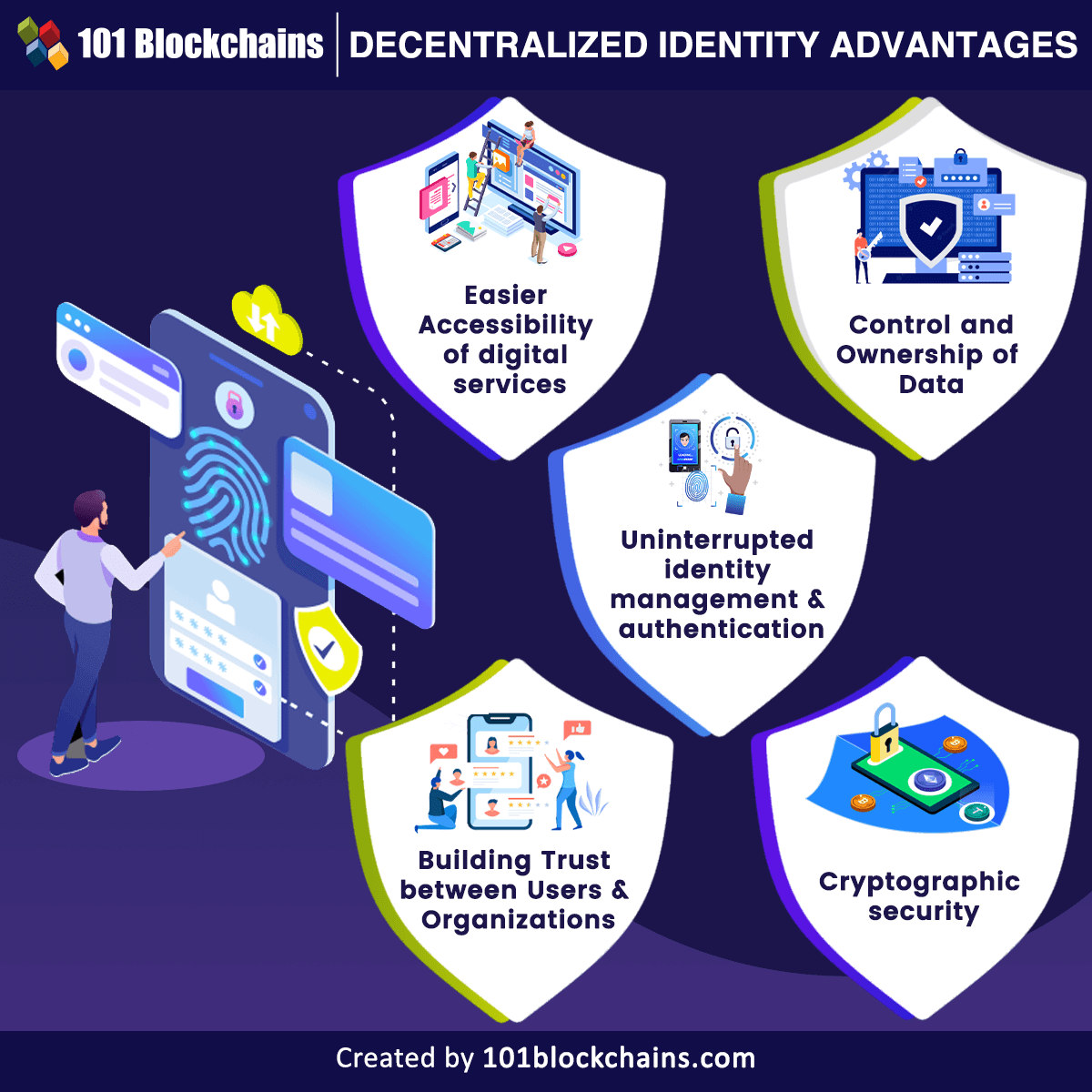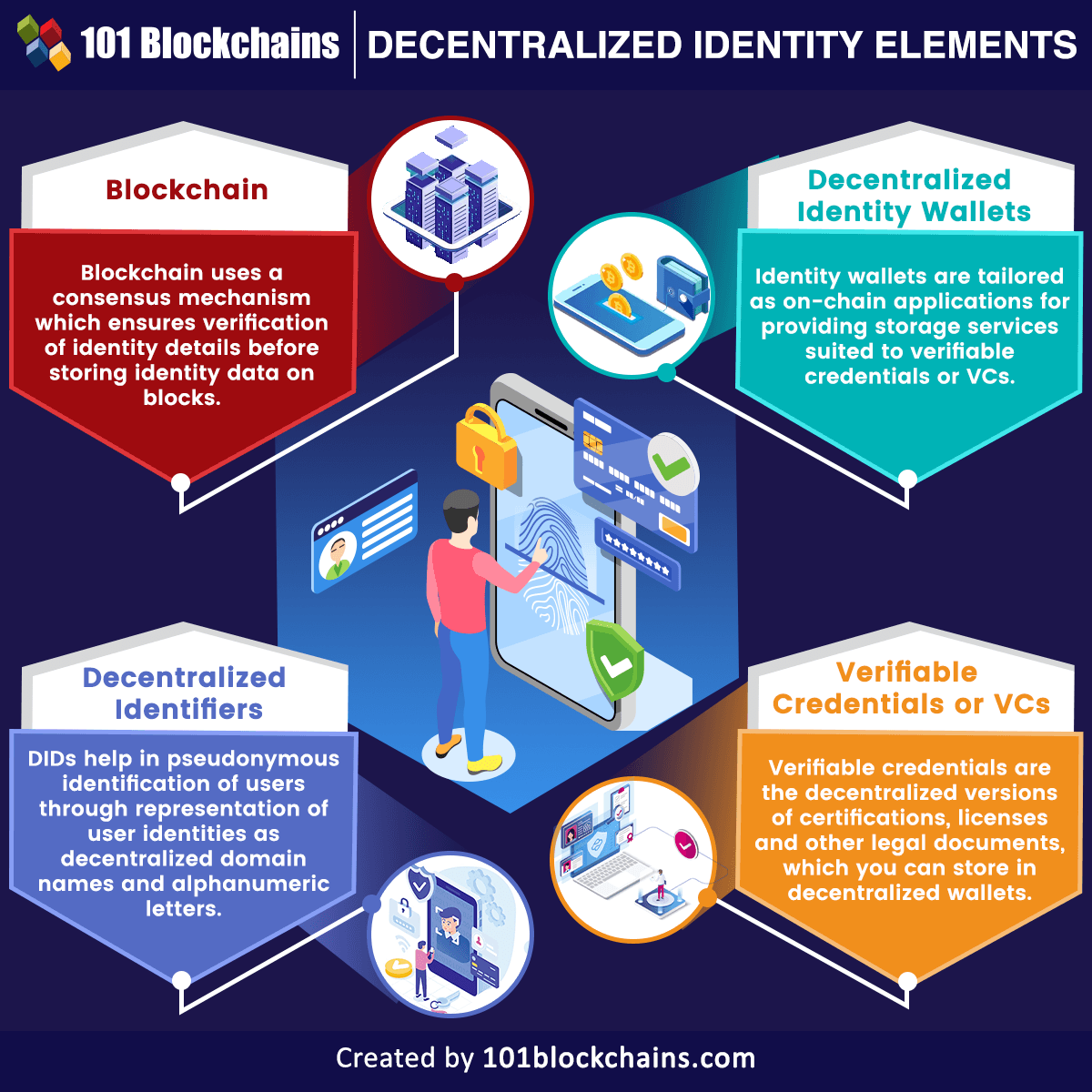In today’s digital age, the management of patient identities in the healthcare industry is becoming increasingly complex. With concerns about data breaches and privacy violations, the need for secure and decentralized identity management has never been more critical. This blog post will explore the significance of decentralized identity management in healthcare, how it works, the benefits it provides, as well as the challenges and risks involved in its implementation. Additionally, we will examine real-life case studies of successful implementation of decentralized identity management in healthcare settings. By the end of this post, you will have a comprehensive understanding of the role decentralized identity management plays in the healthcare industry and how it is transforming the way patient identities are managed and protected.
The Importance of Decentralized Identity Management
Decentralized identity management is becoming increasingly important in today’s digital age. With the growing number of cyber threats and data breaches, having control over our own identity and personal information is crucial. The traditional centralized identity management systems are no longer sufficient to protect individuals and organizations from malicious actors.
By implementing decentralized identity management, individuals have more control over their personal information and how it is shared. This helps in preventing identity theft and fraud, as well as giving users the power to manage their digital identities more securely.
Moreover, in a decentralized identity management system, personal data is not stored in a single database, reducing the risk of a large-scale data breach. This is especially important in industries such as healthcare, where sensitive patient information must be protected at all costs.
Overall, the importance of decentralized identity management cannot be overstated. It provides individuals and organizations with greater control, security, and privacy over their digital identities, making it an essential component of modern-day cybersecurity.
How Decentralized Identity Management Works
Decentralized Identity Management, also known as self-sovereign identity, is a system where individuals have control over their own digital identities. This is achieved through the use of blockchain technology, where the data is stored in a secure and tamper-proof manner. Each individual has their own unique digital identity, which can be verified without the need for a central authority.
One of the key components of how decentralized identity management works is through the use of decentralized identifiers (DIDs). These are unique identifiers that are associated with a specific individual. These DIDs are generated using cryptography, ensuring that they cannot be forged or duplicated.
Another important aspect is the use of verifiable credentials. These are digital, tamper-evident credentials that can be used to prove the identity of an individual. These credentials can be issued by trusted entities and can be stored and managed by the individual in a secure and private manner.
Overall, decentralized identity management works by giving individuals control over their digital identities, utilizing blockchain technology, DIDs, and verifiable credentials to ensure security, privacy, and authenticity.
Benefits of Decentralized Identity Management in Healthcare
Decentralized identity management in healthcare offers numerous benefits to both patients and healthcare providers. One of the key advantages is the enhanced security it provides. By decentralizing identity management, patient data is stored in a secure and immutable manner, reducing the risk of unauthorized access or data breaches. This not only protects patient privacy but also improves trust in the healthcare system.
Another benefit is the improved interoperability and data sharing capabilities. With decentralized identity management, healthcare providers can securely access patient information from different sources, leading to more efficient and coordinated care. This is especially important in emergency situations where quick access to accurate medical records can be life-saving.
Furthermore, decentralized identity management enables patients to have more control over their own data. With the use of self-sovereign identity technologies, patients can manage and share their health information as they see fit, empowering them to take a more active role in their own healthcare.
Lastly, decentralized identity management can lead to cost savings for healthcare organizations. By streamlining identity verification processes and reducing the administrative burden of maintaining centralized identity databases, healthcare providers can allocate resources more efficiently, ultimately leading to improved patient care.
Challenges and Risks of Implementing Decentralized Identity Management
Implementing decentralized identity management in any organization comes with its own set of challenges and risks, especially in the healthcare industry where sensitive patient information is at stake. One of the major challenges is the integration of decentralized systems with legacy systems. Healthcare organizations often rely on outdated systems that are not compatible with newer decentralized technology, making the transition a complex and time-consuming process.
Another challenge is ensuring the security and privacy of patient data. With decentralized identity management, there is a risk of unauthorized access to sensitive information if the system is not properly secured. This can lead to breaches and compromises in patient confidentiality, which can be detrimental to both the patient and the organization.
Furthermore, there is a lack of standardized frameworks and protocols for decentralized identity management, which can lead to interoperability issues. Without a universal set of guidelines, organizations may struggle to implement and maintain a consistent decentralized identity management system, leading to inefficiencies and potential security vulnerabilities.
Lastly, the lack of expertise and understanding of decentralized technology within the healthcare industry poses a significant risk. Many healthcare professionals may not be familiar with the intricacies of decentralized identity management, leading to potential misconfigurations and misuse of the system, further increasing the risk of data breaches and security incidents.
Case Studies: Successful Implementation of Decentralized Identity Management in Healthcare
Decentralized identity management has been gaining traction in the healthcare industry as organizations seek better ways to protect patient data while ensuring easy access for healthcare providers. One successful case study of implementing decentralized identity management in healthcare is the use of blockchain technology to securely store and manage patient records. This not only ensures the integrity and security of patient data but also streamlines access for authorized healthcare professionals.
Another case study involves the use of biometric authentication in decentralized identity management for healthcare. By leveraging biometric data such as fingerprints or iris scans, healthcare organizations are able to ensure that only authorized individuals have access to sensitive patient information. This has been particularly successful in reducing instances of unauthorized access and identity theft within healthcare systems.
Furthermore, the implementation of decentralized identity management has also led to improved interoperability among different healthcare providers. By utilizing a decentralized system, patient records can be securely accessed and shared across various healthcare facilities, leading to more efficient and coordinated care for patients. This has been exemplified in case studies where decentralized identity management has facilitated seamless transitions for patients seeking care from multiple providers.
Overall, these case studies demonstrate the substantial benefits of implementing decentralized identity management in healthcare. From enhanced data security and privacy to improved interoperability and streamlined access, the successful integration of decentralized identity management has marked a significant transformation in how patient data is managed and utilized in the healthcare industry.
Frequently Asked Questions
What is decentralized identity management in healthcare?
Decentralized identity management in healthcare refers to the use of blockchain technology to securely and efficiently manage patient identities and health records without the need for a central authority or intermediaries.
What is the importance of decentralized identity management in healthcare?
Decentralized identity management in healthcare is important as it ensures patient data privacy, security, and interoperability across different healthcare providers and systems.
How does decentralized identity management work in healthcare?
Decentralized identity management in healthcare works by using blockchain to create a unique and tamper-proof digital identity for each patient, which can be accessed and updated by authorized healthcare providers as needed.
What are the benefits of decentralized identity management in healthcare?
The benefits of decentralized identity management in healthcare include improved patient data security, reduced administrative costs, streamlined interoperability, and increased patient empowerment and control over their own health data.
What are the challenges and risks of implementing decentralized identity management in healthcare?
Challenges and risks of implementing decentralized identity management in healthcare include regulatory compliance, data standardization, interoperability issues, and potential security vulnerabilities in blockchain technology.
Can you provide case studies of successful implementation of decentralized identity management in healthcare?
Yes, successful case studies of decentralized identity management in healthcare include the use of blockchain for medical records management in Estonia and the implementation of patient identity verification systems in hospitals using decentralized digital identity platforms.
How can healthcare organizations adopt decentralized identity management?
Healthcare organizations can adopt decentralized identity management by working with blockchain technology providers, ensuring regulatory compliance, implementing data governance policies, and educating staff and patients about the benefits and usage of decentralized digital identities.






